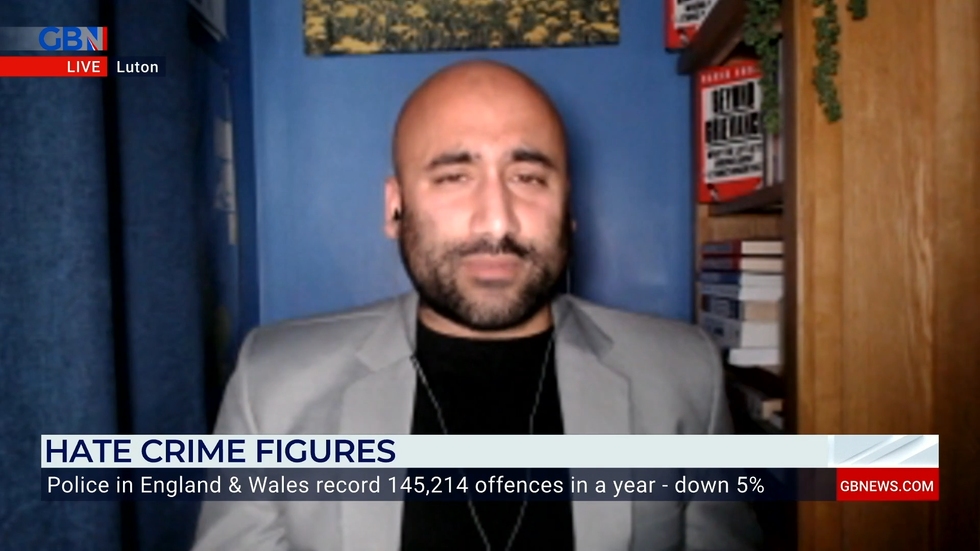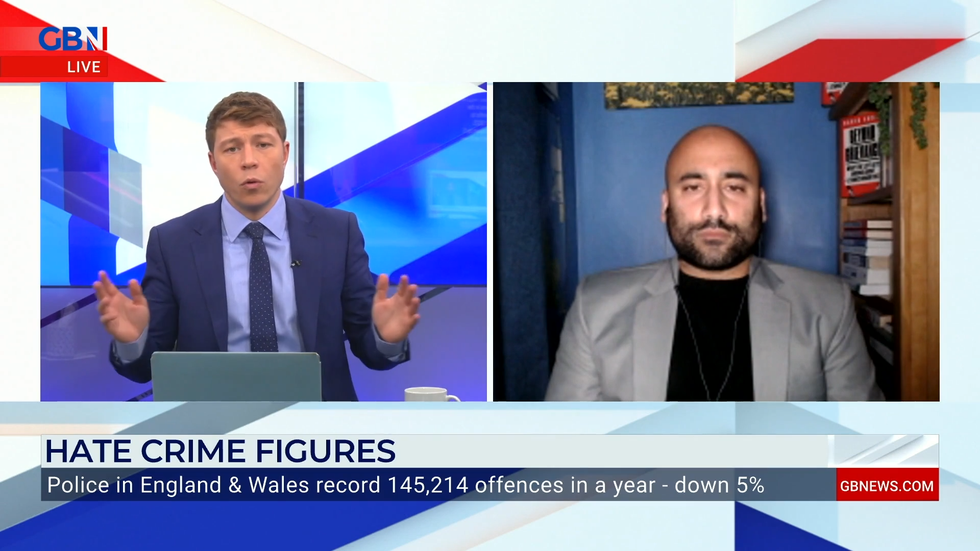Dr Rakib Ehsan said he was 'concerned' by growing forms of Christian hate crimes
Don't Miss
Most Read
Trending on GB News
Dr Rakib Ehsan has detailed a growth in anti-Christian sentiment, as the latest UK figures showed a 9% increase in religious hate crimes, from March 2022 to 2023.
The figured also showed an overall decrease of 5%, with 145,214 hate crimes reported to the police.
Transgender hate crimes had the biggest annual increase, rising 11% to 4,732 reports.
39% of religious hate crime offences were targeted against Muslims. The next most commonly targeted group were Jewish people with 17% of reports. Christian hate crime reports make up 7% of the figures, and in 22% of offences reported, the targeted religion was not known.

Dr Rakib Ehsan discusses the increase in religious hate crimes in the UK
GB News
Speaking to Patrick Christys on his GB News show, social policy analyst Dr Rakib Ehsan analysed the figures and the reasons for the increase in religious hate crimes.
Patrick asked: “So Britain is not a particularly hateful nation then, is it? Overall, hate crimes are down.”
Dr Ehsan agreed: “Well, I wouldn't say so. As you say, Patrick, hate crimes are down. For particular types of hate crimes there've been some increases and decreases of note.
“But I think if you're looking at Kemi Badenoch’s speech, I fully agree with her, I think that this is something that I've said many times before on GB News, that we are a relatively successful multiracial democracy. We've seen that the race related hate crimes, even though they make up the largest portion of hate crimes, they're actually down from last year.
“I think in terms of religious hate crimes you mentioned there, Patrick, there has been an increase. And while I do argue that Britain is one of the best places to live as a religious minority."
Dr Ehsan continued: "We should do more to tackle various forms of anti-Muslim prejudice and anti-Semitism. I also noticed, though, that that I think 7% of the religious hate crimes were reported by people with the Christian identification as well.
“And I have been concerned by growing forms of anti-Christian sentiment in my view, which is almost seen as a more acceptable form of discrimination. I don't think that's right at all.
“But the one point I think we should make, Patrick, is that we shouldn't conflate very real forms of hateful discrimination with perfectly legitimate criticisms of ideology. I think there is a fundamental difference between the two.”
Patrick then asked: “Is there an argument that says maybe people are more inclined to take a legitimate criticism of a religion. If somebody says something about a lack of integration, for example, or things like that, and say this is a hate crime, I'm reporting you for a hate crime?”

Patrick Christys argued that people are 'inclined' to make legitimate criticism of religion
GB News
Dr Ehsan replied: “No, absolutely. And I think that as I said before, we need to get away from that dangerous conflation between perfectly legitimate criticisms of ideology, whether that's a particular religion, or indeed we talked about it, you mentioned the increase in hate crimes towards transgender people.
“I think that the trans people should be able to live a life free from harassment, intimidation and violence, but equally criticising the very excesses of radical transgenderism. I don't think that's a form of discrimination.
“Indeed, that could, that could be on the back of a fundamental defence of women's rights.
So I think that we really need to understand that in a in a free and fair democracy such as ours, it is perfectly legitimate to criticise ideologies, and that is not necessarily a form of hateful discrimination.”








